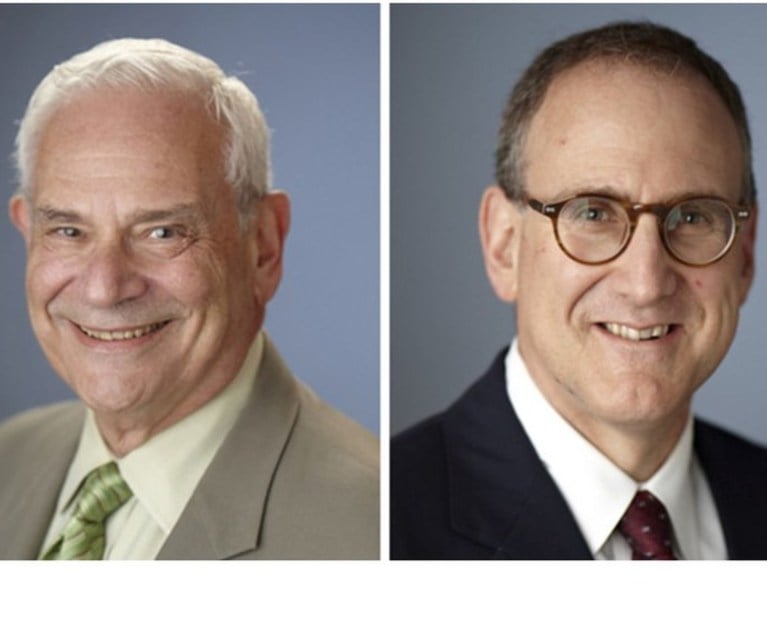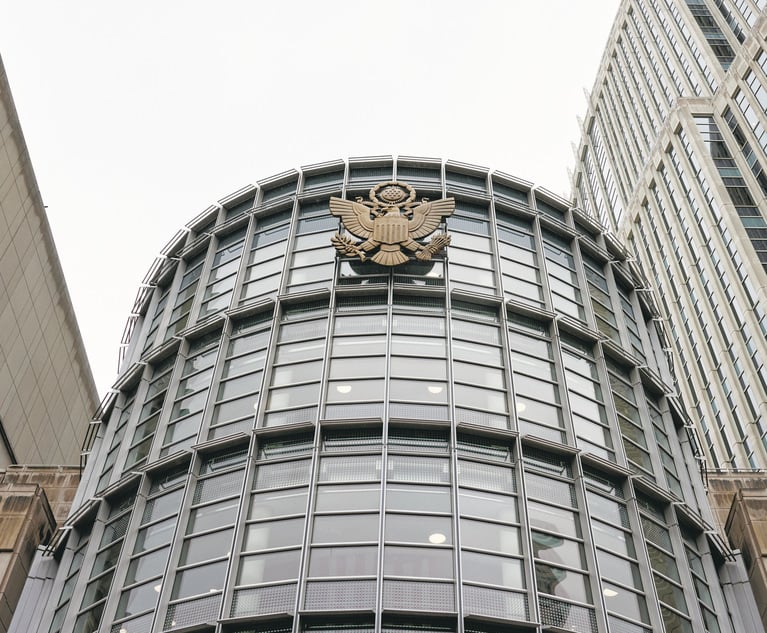 Elkan Abramowitz and Jonathan S. Sack
Elkan Abramowitz and Jonathan S. Sack Property in Mail and Wire Fraud Cases: 'Kelly v. United States' and Its Aftermath
In 'Kelly v. United States', a unanimous Supreme Court held that a scheme was not intended to "obtain property" when its objective was to misuse government officials' regulatory powers, or when monetary losses were "incidental," and not the actual object of the scheme. Following 'Kelly', the meaning of property was central to two high-profile cases in the Second Circuit, 'Blaszczak' and 'Gatto'. In this edition of their White-Collar Crime column, Elkan Abramowitz and Jonathan S. Sack explain the impact of 'Kelly' on 'Blaszczak' and 'Gatto' and conclude with a brief discussion of the "right to control" theory of mail and wire fraud, which has been challenged in light of the 'Kelly' decision.
January 06, 2022 at 12:15 PM
10 minute read
Under the federal mail and wire fraud statutes, it is a crime to "obtain[] money or property by means of false or fraudulent pretenses, representations, or promises," or to deprive someone of the "intangible right of honest services." 18 U.S.C. §§1341, 1343, 1346. The scope of these prohibitions has expanded over time. This expansion has been met with infrequent, but significant, pushback from the courts. Perhaps most prominent is the line of Supreme Court decisions which initially resisted and later narrowed the scope of "honest services" fraud. See McNally v. United States, 483 U.S. 350 (1987); Skilling v. United States, 130 S. Ct. 2896 (2010); McDonnell v. United States, 136 S. Ct. 2355 (2016).
In Kelly v. United States, 140 S. Ct. 1565 (2020), the Supreme Court turned its attention to a fraud scheme premised on "obtaining money or property." Id. at 1572. In that case, the Supreme Court rejected the government's theory of "property." A unanimous court held that a scheme was not intended to "obtain property" when its objective was to misuse government officials' regulatory powers, or when monetary losses were "incidental," and not the actual object of the scheme.
This content has been archived. It is available through our partners, LexisNexis® and Bloomberg Law.
To view this content, please continue to their sites.
Not a Lexis Subscriber?
Subscribe Now
Not a Bloomberg Law Subscriber?
Subscribe Now
NOT FOR REPRINT
© 2025 ALM Global, LLC, All Rights Reserved. Request academic re-use from www.copyright.com. All other uses, submit a request to [email protected]. For more information visit Asset & Logo Licensing.
You Might Like
View All
Disbarred NY Atty Receives 54-Month Prison Sentence After $3M Embezzlement
3 minute read

Charlie Javice Jury Will Not See Her Texts About Elizabeth Holmes

'You Became a Corrupt Politician': Judge Gives Prison Time to Former Sen. Robert Menendez for Corruption Conviction
5 minute readLaw Firms Mentioned
Trending Stories
- 1Eliminating Judicial Exceptions: The Promise of the Patent Eligibility Restoration Act
- 2AI in Legal: Disruptive Potential and Practical Realities
- 3One Court’s Opinion on Successfully Bankruptcy Proofing a Borrower
- 4Making the Case for Workflow Automation
- 5Copyright Infringement by Generative AI Tools Under US and UK Law: Common Threads and Contrasting Approaches
Who Got The Work
J. Brugh Lower of Gibbons has entered an appearance for industrial equipment supplier Devco Corporation in a pending trademark infringement lawsuit. The suit, accusing the defendant of selling knock-off Graco products, was filed Dec. 18 in New Jersey District Court by Rivkin Radler on behalf of Graco Inc. and Graco Minnesota. The case, assigned to U.S. District Judge Zahid N. Quraishi, is 3:24-cv-11294, Graco Inc. et al v. Devco Corporation.
Who Got The Work
Rebecca Maller-Stein and Kent A. Yalowitz of Arnold & Porter Kaye Scholer have entered their appearances for Hanaco Venture Capital and its executives, Lior Prosor and David Frankel, in a pending securities lawsuit. The action, filed on Dec. 24 in New York Southern District Court by Zell, Aron & Co. on behalf of Goldeneye Advisors, accuses the defendants of negligently and fraudulently managing the plaintiff's $1 million investment. The case, assigned to U.S. District Judge Vernon S. Broderick, is 1:24-cv-09918, Goldeneye Advisors, LLC v. Hanaco Venture Capital, Ltd. et al.
Who Got The Work
Attorneys from A&O Shearman has stepped in as defense counsel for Toronto-Dominion Bank and other defendants in a pending securities class action. The suit, filed Dec. 11 in New York Southern District Court by Bleichmar Fonti & Auld, accuses the defendants of concealing the bank's 'pervasive' deficiencies in regards to its compliance with the Bank Secrecy Act and the quality of its anti-money laundering controls. The case, assigned to U.S. District Judge Arun Subramanian, is 1:24-cv-09445, Gonzalez v. The Toronto-Dominion Bank et al.
Who Got The Work
Crown Castle International, a Pennsylvania company providing shared communications infrastructure, has turned to Luke D. Wolf of Gordon Rees Scully Mansukhani to fend off a pending breach-of-contract lawsuit. The court action, filed Nov. 25 in Michigan Eastern District Court by Hooper Hathaway PC on behalf of The Town Residences LLC, accuses Crown Castle of failing to transfer approximately $30,000 in utility payments from T-Mobile in breach of a roof-top lease and assignment agreement. The case, assigned to U.S. District Judge Susan K. Declercq, is 2:24-cv-13131, The Town Residences LLC v. T-Mobile US, Inc. et al.
Who Got The Work
Wilfred P. Coronato and Daniel M. Schwartz of McCarter & English have stepped in as defense counsel to Electrolux Home Products Inc. in a pending product liability lawsuit. The court action, filed Nov. 26 in New York Eastern District Court by Poulos Lopiccolo PC and Nagel Rice LLP on behalf of David Stern, alleges that the defendant's refrigerators’ drawers and shelving repeatedly break and fall apart within months after purchase. The case, assigned to U.S. District Judge Joan M. Azrack, is 2:24-cv-08204, Stern v. Electrolux Home Products, Inc.
Featured Firms
Law Offices of Gary Martin Hays & Associates, P.C.
(470) 294-1674
Law Offices of Mark E. Salomone
(857) 444-6468
Smith & Hassler
(713) 739-1250






